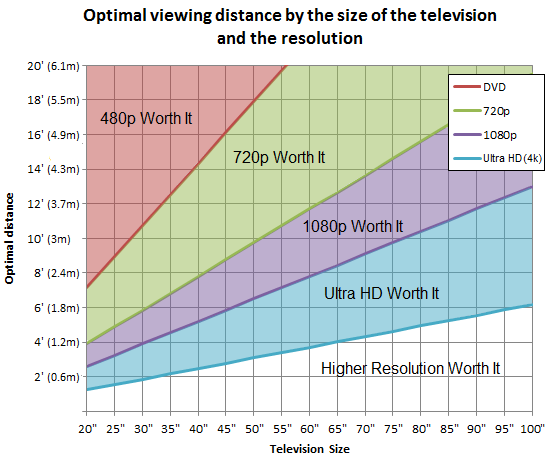Quote:
Originally Posted by Anthony P

I remember similar discussions for 4k and HD.
|
I understand this reaction -- that we're seeing a repeat of a pattern we've seen play out before, and it'll play out the same way again this time -- but I think it's wrong.
Like, to start with, let's all admit that it would eventually be wrong to keep expecting that pattern to hold. Even if 8K turns out to follow the HD/4K pattern, and takes over, you wouldn't expect 16K to, right? Or if you think 16K might, then surely you don't think 32K would. "Increasing resolution eventually becomes pointless and counter-productive" is a proposition that every single person in this discussion agrees with.
So now that takes "this is what happened with 4K and HD" off the table, and we need to answer the specific question of: Does the pattern stop with 4K, or does it continue to 8K?
And here the "stops at 4K" arguments look very strong. They are:
1. There is no room for dynamic range to exceed current 4K standards. DV supports up to 10K nits brightness. Displays can't even get close to that today, but if they could, there's no reason to think that "brighter than 10K nits" would be meaningful or desirable to viewers.
2. There is no room for color gamut to exceed current 4K standards. DCI-P3 is what everything is mastered in today, and Rec.2020 is much broader than that. A standard with a larger-than-2020 color space would not particularly useful or meaningful to viewers.
3. There is no room for resolution to exceed current 4K standards. At recommended/desirable viewing distances for any given display size, 4K outresolves the human eye. Notably, this was
not true of the SD->HD or HD->4K transitions, where the human eye at THX recommended distances could outresolve SD and HD.
Those all seem like very compelling things to me! They indicate that the UHD standard has gotten to a place of technical perfection, where we're now limited just by the limitations of display devices and video capture/transmission technologies. As those things improve, UHD will get better, but the limits on what the UHD standards can handle are large enough that there's no space for things to meaningfully improve beyond them.
Against those arguments, in favor of 8K, we have:
1. If you sit extremely uncomfortably close to a screen (5 feet away from 88"!) and are viewing perfect 8K content shot specifically to be demo reel material, you may think that it's very slightly better than 4K.
2. 8 is more than 4, and I like bigger numbers.
Seriously, what are the other arguments in favor of 8K? Not the technical capability ones -- I agree that if there were a reason to make 8K TVs, tech would be able to do it -- but the "benefit to the viewer" arguments. They don't exist. And that's the reason why the "numbers go up" trend stops with 4K.






















 s and geeks dominate the discussions, where is the enthusiasm for 8K? If you can't find much love for 8K, here at blu-ray.com of all places, where else will you find it?
s and geeks dominate the discussions, where is the enthusiasm for 8K? If you can't find much love for 8K, here at blu-ray.com of all places, where else will you find it?
 Linear Mode
Linear Mode

